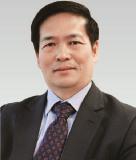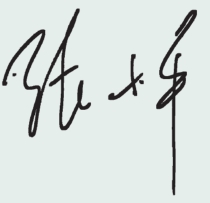1.Aims and Scope
With the core of Global Energy Interconnection (GEI),Global Energy Interconnectionsets up the following columns:Theory,Strategy,Planning,Advanced Transmission,Smart Grid,Clean Energy,Technological Focus,Project,Innovative Trend;focuses on professional fields of interconnection of energy,exploration and application of clean energy,sustainable development of economy and society,global governance of climate change,etc.;mainly publishes academic papers of related strategies,plans,techniques,equipment,projects,designs and standards.
The topics include but are not limited to:
● Theoretical research results,promotions to facilitate the implementation of GEI.
● Development concepts,strategy systems,realization paths and comprehensive values of GEI.
● Development planning,system design and technique and economy analysis of GEI.
● Advanced transmission technology including UHVAC,UHVDC,new power transmission,flexible AC/DC transmission,and control and protection for interconnected grid,etc.
● Smart grid technology including smart substations,DC grid,smart power distribution,interaction of electricity,etc.
● Clean energy technology including clean energy generation,integration and consumption of clean energy,control and protection of clean energy,etc.
● Technological development directions,trends in energy fields.
● Application of projects in energy fields.
● Innovative products including completely new technology,methods,improvements to present products,etc.
2.Submission Requirements
● Submissions should be completed by authors without any academic misconduct.
● Multi-submission of one paper is prohibited.Authors should promise not to publish any main point of submissions at other publications before.
● No information of authors should appear at the text.
● The length of the paper is better with no more than 5000 characters.
● Global Energy Interconnection has the right to modify the words of your paper.If you don’t allow any modi fication,please indicate it.
● Please give your phone number and e-mail address,which are the most common ways to communicate.Please tell us if there is any change to your contact information.
3.Content Requirements
All submissions should include the following contents:
● Titles:brief,concise,to the point.
● Name of authors,companies of authors:first author should be at the first,the rest is in turn.
● Abstract:brie fly re flects the main points of the paper.
● Key words:general words mainly used for literature index.
● Introduction:cut-in point of this paper,previous research results of this field.
● References:numbered according to the order by which the reference first appears in this paper.
● Biographies of authors:including photos,education experience,working experience,e-mail address,etc.
The potential for renewable energy to make contributions to mitigating the impact of climate change is expected to increase signi ficantly in the longer term.Renewable energy generation technologies including onshore wind,offshore wind,wave,tidal,marine current,and ocean thermal energy generation as well as PV power generation,which are considered essential to meet long term aim of reducing CO2emissions,have experienced rapid development and signi ficant progresses during the past 10 years.
Decarbonizing the power sector by ramping up the adoption of renewable energy is essential to meet the goals of the Paris Agreement where the required acceleration of the global shift to low carbon can only be achieved through a combination of clean energy generation,modern transmission technologies and power grid interconnectivity,which all play important roles in the transition.It is well recognized now thatGlobal Energy Interconnection (GEI)is crucial for Paris Goalsas the GEI initiative comprehensively promotes the implementation of six agenda items of the Paris Agreement,including mitigation,adaptation,finance,technology,capacity building and transparency.
Responding to the UNFCCC COP24 being held in Poland in December,this special issue provides a timely and comprehensive review of recent progresses,applications,and challenges spurred by the large scale renewable energy generation and associated transmission technology developments.It is intended for a broad audience interested in gaining comprehensive understanding of technical issues and opportunities that may exist in this important field.The special issue consists of 3 parts,namely
·Column 1:Integration of renewable energy
·Column 2:Renewable energy generation
·Column 3:Advanced transmission and operation to support renewable energy integration
In Column 1,the focus is on the integration of renewable energy,and there are 4 papers,which address the integration of renewable energy and related technologies including the assessment of the economic bene fits of electricity interconnection between China and EU,a restoration strategy using micro-grids for restoring power supply to critical loads after a natural disaster in order to enhance the resilience of the distribution power grid,the regulating cost of power system with high renewables penetration,and superconducting technology for supporting renewable integration.
In Column 2,the focus is on the renewable energy generation and control technologies,and there are 3 papers,which discuss smoothing of power output of integrated wind/wave energy system,tuning governor control parameters of a hydropower generator considering the primary frequency performance and small-signal stability,quantitative analysis of distributed,and centralized development modes for renewable energy.
In Column 3,advanced transmission and operations to support renewable energy integration are investigated,which include the system security assessment and control of hybrid AC-HVDC-systems,simulation and engineering application of cross area Multi-HVDCs Interconnection,operation of offshore wind farms connected with diode rectifier unit (DRU)-based high-voltage DC (DRU-HVDC)system,new technology and development trends in HVDC transmission system to support renewable energy integration,and route designs and cost estimation for Japan-Russia and Japan -South Korea interconnections.
Contacts:geijournal@geidco.org
Manucript Submission:https://www.editorialmanager.com/gloei
Open Access at Elseviler’s ScienceDirect:https://www.sciencedirect.com/journal/gobal-energy-interconnection

Professor Zhang is currently Chair in Electrical Power Systems,Director of Smart Grid,Birmingham Energy Institute,Co-Director of Birmingham Energy Storage Centre at the University of Birmingham,UK.He was an Alexander-von-Humboldt Fellow with the University of Dortmund,Germany.He coauthored 5 books including the monograph “Flexible AC Transmission Systems:Modelling and Control”(Springer,2006 and 2012)and“Restructured Electric Power Systems:Analysis of Electricity Markets with Equilibrium Models”(IEEE Press/Wiley in 2010).Prof Zhang is an IEEE PES Distinguished Lecturer on HVDC,FACTS and Wave Energy Generation.Prof Zhang is also Secretary of IFAC Technical Committee on Power and Energy Systems Control.He is advisor to the IEEE PES UK&Ireland Chapter.He has been appointed as a panel member of the International Exchanges Committee of Royal Society since Jan 2018.He is co-founder of the UK-China Strategic Workshop Series on Smart Grid.He is a pioneer in promoting the concepts of “Flexible LCC HVDC”,“Energy Union”,“Energy Quality”and “UK’s Energy Valley”.

